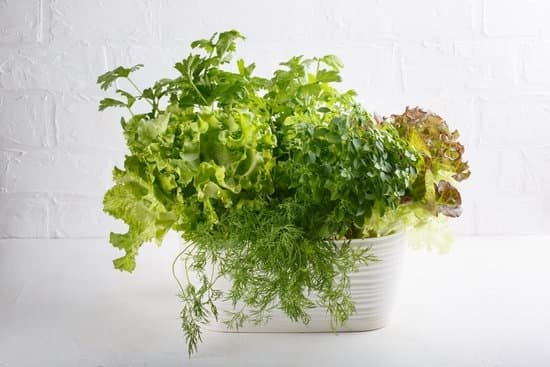Container veg gardening ideas are perfect for urban dwellers looking to grow their own fresh produce in small spaces. Whether you have a balcony, rooftop, or tiny backyard, container gardening offers a convenient and efficient way to cultivate vegetables at home. In this article, we’ll explore the benefits of container veg gardening and provide tips and ideas for getting started.
One of the primary advantages of container veg gardening is its flexibility and accessibility. With the right containers and supplies, you can transform any urban space into a flourishing vegetable garden. Whether you’re a beginner or an experienced gardener, container gardening allows you to enjoy the satisfaction of growing your own food without needing a large plot of land.
In addition to being practical, container gardening also offers aesthetic value, allowing urban dwellers to enhance their outdoor living spaces with lush greenery and colorful produce. From choosing the right containers and essential supplies to selecting the perfect vegetables for your space, this article will cover everything you need to know about starting a successful container veg garden.
Choosing the Right Containers
When it comes to container veg gardening, choosing the right containers is crucial for the success of your garden. Whether you have a small balcony, patio, or even just a windowsill, there are various options to consider when selecting the right containers for your vegetables.
Pots and Planters
Pots and planters are the most common choice for container vegetable gardening. They come in a variety of sizes and materials, including ceramic, plastic, and terra cotta. When choosing pots, it’s important to consider the size of the vegetable plant when fully grown. Larger plants such as tomatoes will require larger pots with plenty of room for their roots to grow.
Grow Bags
Grow bags are another popular option for container veg gardening. These lightweight and portable bags are made from breathable fabric that allows for proper root aeration and drainage. They come in various sizes and are ideal for growing a wide range of vegetables such as lettuce, carrots, and peppers.
Raised Beds
For those with limited outdoor space, raised beds can be an excellent choice for container veg gardening. Raised beds can be built at waist height or higher, making them easy to access for watering, weeding, and harvesting. They also provide ample space for roots to spread out and thrive.
By choosing the right containers for your specific space and needs, you can set your container veg garden up for success from the start.
Essential Supplies
When starting a container veg garden, having the right supplies is crucial to ensuring the success of your plants. The first essential supply you will need is soil. It’s important to choose a high-quality potting mix that is well-draining and nutrient-rich. Look for a mix specifically formulated for container gardening, as it will provide the ideal environment for your vegetables to thrive.
Fertilizer is another essential supply for container veg gardening. Since container plants have limited access to nutrients in the ground, they rely on you to provide them with the nourishment they need to grow. Look for a balanced, slow-release fertilizer that is suitable for vegetables, and be sure to follow the instructions on the package for how and when to apply it.
In addition to soil and fertilizer, proper watering tools are essential for container veg gardening. Depending on the size and number of containers you have, you may need a watering can or hose attachment with a gentle spray nozzle. It’s important to water your vegetable containers regularly, as they can dry out quickly, especially during hot weather.
These essential supplies are the foundation of a successful container veg garden. By providing your plants with the right soil, fertilizer, and watering tools, you can create an environment where your vegetables can thrive and produce bountiful harvests.
| Supply | Recommendation |
|---|---|
| Soil | High-quality potting mix suitable for container gardening |
| Fertilizer | Balanced, slow-release fertilizer suitable for vegetables |
| Watering Tools | Watering can or hose attachment with a gentle spray nozzle |
Selecting the Perfect Vegetables
When it comes to container veg gardening ideas, selecting the perfect vegetables for your small space is crucial to the success of your garden. Not all vegetables are suitable for container gardening, so it’s important to choose varieties that are well-suited for this type of gardening. Here are some of the best options for container gardening:
Tomatoes
Tomatoes are one of the most popular choices for container gardening. There are many dwarf and determinate varieties that are specifically bred for small spaces. Look for compact tomato plants that can thrive in a pot or hanging basket.
Peppers
Peppers, both sweet and hot varieties, can also be successfully grown in containers. Choose smaller pepper plants that will be happy in a pot and provide plenty of sunlight and warmth.
Herbs
Herbs are an excellent choice for container gardening, as they don’t need a lot of space to thrive. Some popular herbs to consider growing in containers include basil, parsley, mint, and chives.
Salad Greens
Lettuce, spinach, arugula, and other salad greens are perfect for container gardening. These fast-growing veggies can be harvested continuously throughout the growing season.
When selecting vegetables for your container garden, consider the size of your pots or raised beds, as well as the amount of sunlight your space receives each day. By choosing the right vegetables for your specific conditions, you’ll set yourself up for a successful container veg gardening experience.
Creative Container Ideas
When it comes to container veg gardening ideas, there are plenty of innovative ways to grow vegetables even in the smallest of spaces. One creative idea is to utilize hanging planters, which can be suspended from balconies, railings, or hooks on the wall. This not only maximizes vertical space but also adds a decorative touch to your outdoor area. Additionally, using tiered plant stands or shelving units can create more room for multiple containers without taking up valuable floor space.
Another unique container veg gardening idea is to repurpose old items such as buckets, barrels, or even wooden crates. These unconventional containers add a charming and rustic aesthetic to your garden while providing a functional purpose. In addition, you can get creative with vertical gardening by using stackable planters or building a trellis system for vining vegetables like tomatoes or cucumbers.
Furthermore, considering the use of window boxes is a great way to incorporate vegetable gardening into urban living. These long and narrow containers are perfect for growing herbs, lettuce, or small root vegetables right outside your kitchen window. Not only do they add visual appeal, but they also provide easy access for harvesting fresh produce while cooking.
These creative container veg gardening ideas showcase how you can think outside the box (or pot) to make the most of limited space and still enjoy the benefits of homegrown vegetables.
| Creative Container Idea | Description |
|---|---|
| Hanging planters | Suspended from balconies or walls to maximize vertical space |
| Repurposed items | Using old buckets, barrels, or crates for a rustic and functional look |
| Window boxes | Perfect for growing herbs and small veggies right outside your kitchen window for easy access |
Tips for Success
Successfully maintaining a thriving container garden requires a combination of knowledge, dedication, and creativity. Here are some tips to help you achieve success with your container veg gardening ideas:
- Choose the right location: Place your containers in an area that receives adequate sunlight for the vegetables you are growing.
- Use high-quality soil: Invest in good potting mix that is well-draining and nutrient-rich to provide a healthy environment for your plants.
- Proper watering: Ensure that your containers have drainage holes and water them regularly, especially during hot weather.
- Fertilize as needed: Depending on the type of vegetables you are growing, consider using organic fertilizer to provide essential nutrients.
Moreover, it’s important to monitor your plants closely for signs of pests or diseases. Check for any abnormalities in the leaves or stems and take action promptly if you notice any issues. Additionally, regular pruning and proper spacing of plants within the containers can also contribute to their overall health and productivity.
Lastly, stay informed about the specific needs of the vegetables you have chosen to grow. Whether it’s tomatoes, peppers, lettuce, or herbs, each plant has its own requirements for sunlight, water, and care. By staying attuned to these needs and providing your container garden with attentive care, you can increase the likelihood of a bountiful harvest.
Remember that successful container gardening is not just about growing vegetables; it’s also about creating an enjoyable and sustainable experience. By following these tips for maintaining a thriving container garden, you can cultivate an abundant oasis even in the heart of urban living.
Troubleshooting Common Issues
Dealing with pests, diseases, and other challenges can be a common issue for container veg gardening enthusiasts. However, there are several strategies and techniques that can help address these problems and ensure a successful harvest. Here are some tips for troubleshooting common issues in your container veg garden:
- Identify the Problem: Regularly inspect your plants for any signs of pests or diseases. Look for holes in leaves, discoloration, or unusual growth patterns. Identifying the issue early can help prevent it from spreading.
- Natural Remedies: Consider using natural methods to control pests and diseases in your container garden. For example, introducing beneficial insects like ladybugs or using neem oil as a natural insecticide can help combat common garden pests without harming the environment.
- Proper Watering and Drainage: Overwatering or poor drainage can lead to root rot and other issues in container plants. Make sure your containers have adequate drainage holes and water your plants only when the top inch of soil is dry.
In addition to these tips, it’s important to also practice good garden hygiene by regularly removing dead or diseased foliage, rotating crops, and keeping your gardening tools clean to prevent the spread of diseases. By being proactive and attentive to the needs of your container vegetables, you can minimize common issues and enjoy a bountiful harvest.
Remember that every garden is different, so it’s essential to be observant and responsive to what’s happening with your own container veg gardening ideas endeavor. With patience and perseverance, you can overcome common challenges and enjoy a thriving container veg garden.
Harvesting and Enjoying the Fruits of Your Labor
As the fruits of your labor start to ripen, it’s time to enjoy the rewards of your container veg gardening efforts. One of the great things about container gardening is that it allows you to easily keep track of which vegetables are ready for harvest. When your tomatoes are plump and red, or your peppers are vibrant and firm, simply pluck them from the plant and savor their fresh flavors.
In addition to traditional harvesting, there are also some fun and creative ways to maximize your container veg gardening experience. Consider hosting a “garden-to-table” dinner party with friends and family, where you can showcase the delicious produce from your own garden. You could even exchange surplus veggies with neighbors who have their own container gardens, creating a sense of community and camaraderie.
Furthermore, preserving the bounty from your container garden can be a fulfilling way to make the most out of your harvest. Whether you choose to can homemade salsa using your homegrown tomatoes and peppers or freeze excess produce for future use in soups or stews, there are plenty of options to ensure that none of your hard-earned vegetables go to waste.
Getting creative in the kitchen allows you to enjoy the fruits (or rather, vegetables) of your labor long after the growing season has ended.
Conclusion
In conclusion, container veg gardening offers a fantastic opportunity for urban dwellers to experience the joys of growing their own fresh produce in limited spaces. The ease and convenience of this method make it an ideal option for those with minimal outdoor areas or no access to traditional garden plots. By choosing the right containers, essential supplies, and the perfect vegetables, anyone can create a thriving container garden right on their doorstep.
With a multitude of creative container ideas available, there are endless possibilities for growing vegetables in small spaces. Whether it’s repurposing old buckets and crates or using vertical planters and hanging baskets, there are plenty of innovative ways to maximize space while still enjoying a bountiful harvest. These ideas can provide inspiration for both seasoned gardeners and beginners looking to try their hand at container veg gardening.
For those interested in embarking on this rewarding journey, patience and dedication are key. With proper care and attention, along with strategies for troubleshooting common issues, a successful container garden is well within reach.
By following these tips for success and staying committed to regular maintenance, anyone can enjoy the satisfaction of harvesting and enjoying the fruits of their labor from their own container veg garden. So why not start your own container veg garden today and experience the delight of growing your own fresh produce?
Frequently Asked Questions
What Vegetables Grow Well Together in a Container?
Some vegetables that grow well together in a container include peppers, tomatoes, and basil. These plants have similar sunlight and water needs, making them compatible for container gardening.
What Vegetables Work Well in Container Gardens?
Several vegetables work well in container gardens including lettuce, spinach, carrots, radishes, and green onions. These plants don’t require a lot of space and can thrive in the limited environment of a container.
How Deep Should a Container Vegetable Garden Be?
The depth of a container for a vegetable garden depends on the type of vegetable being grown. In general, most vegetables need a container that is at least 12 inches deep to allow enough room for their roots to grow. However, deeper containers are required for larger or long-rooted veggies like tomatoes or carrots.

Welcome to my gardening blog! I am passionate about plants and enjoy sharing my knowledge and experiences with others. In this blog, I will write about everything related to gardening, from tips on how to get started to updates on my own garden projects.





